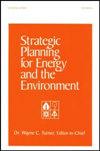Energy, Environment, and Sustainability: A Multi-criteria Evaluation of Countries
Q3 Environmental Science
Strategic Planning for Energy and the Environment
Pub Date : 2022-05-25
DOI:10.13052/spee1048-5236.4133
引用次数: 11
Abstract
Energy, the environment, and sustainability are all strongly intertwined concerns. While humanity aims to spread the comfort and welfare it has achieved on a global scale, as well as to achieve more development and comfort through technological advances, it is caught in a stalemate caused by the world’s use of resources as if they are limitless, as well as irrevocable environmental damage. The major topic of this dilemma is energy. Using ARAT, CRITIC, SOWIA, CRADIS, and CODAS-Sort, this study aims to evaluate countries on the basis of energy, environment, and sustainability triangle. The results reveal that developed countries are in a better situation than developing and underdeveloped countries in terms of sustainable energy and environmental concerns. The Nordic countries notably lead the rankings and classification results. The primary reason for this is that Nordic countries have strong climate and energy policies. Given the limitations of fossil fuels, the fact that they’ll be exhausted in a few decades, and the environmental damage they cause, the development and effective use of renewable energy sources is considered a critical solution option. Because it appears that humanity will struggle to give up its existing level of comfort or lower its energy use. The importance of energy efficiency, diversification of renewable energy sources, raising societal awareness, unity in global sustainable environmental policies, aiding societies that are falling behind in achieving welfare and fighting poverty and focusing on energy savings emerge at this point. A strong will and community support will be necessary to adopt and implement these policies.能源、环境和可持续性:对各国的多标准评估
能源、环境和可持续性都是相互交织的问题。尽管人类的目标是在全球范围内传播其所获得的舒适和福利,并通过技术进步实现更多的发展和舒适,但由于世界对资源的使用似乎是无限的,以及不可逆转的环境破坏,人类陷入了僵局。这一困境的主要话题是能源。本研究采用ARAT、CRITIC、SOWIA、CRADIS和CODAS排序,旨在基于能源、环境和可持续性三角对各国进行评估。研究结果表明,发达国家在可持续能源和环境问题上的处境比发展中国家和欠发达国家要好。北欧国家在排名和分类结果方面明显领先。造成这种情况的主要原因是北欧国家有强有力的气候和能源政策。考虑到化石燃料的局限性,它们将在几十年内耗尽,以及它们造成的环境破坏,开发和有效利用可再生能源被认为是一个关键的解决方案。因为人类似乎将努力放弃现有的舒适水平或降低能源使用。能源效率的重要性、可再生能源的多样化、提高社会意识、全球可持续环境政策的团结、帮助在实现福利和消除贫困方面落后的社会以及关注能源节约都在这一点上显现出来。采取和实施这些政策需要强有力的意愿和社会支持。
本文章由计算机程序翻译,如有差异,请以英文原文为准。
求助全文
约1分钟内获得全文
求助全文
来源期刊

Strategic Planning for Energy and the Environment
Environmental Science-Environmental Science (all)
CiteScore
1.50
自引率
0.00%
发文量
25
 求助内容:
求助内容: 应助结果提醒方式:
应助结果提醒方式:


